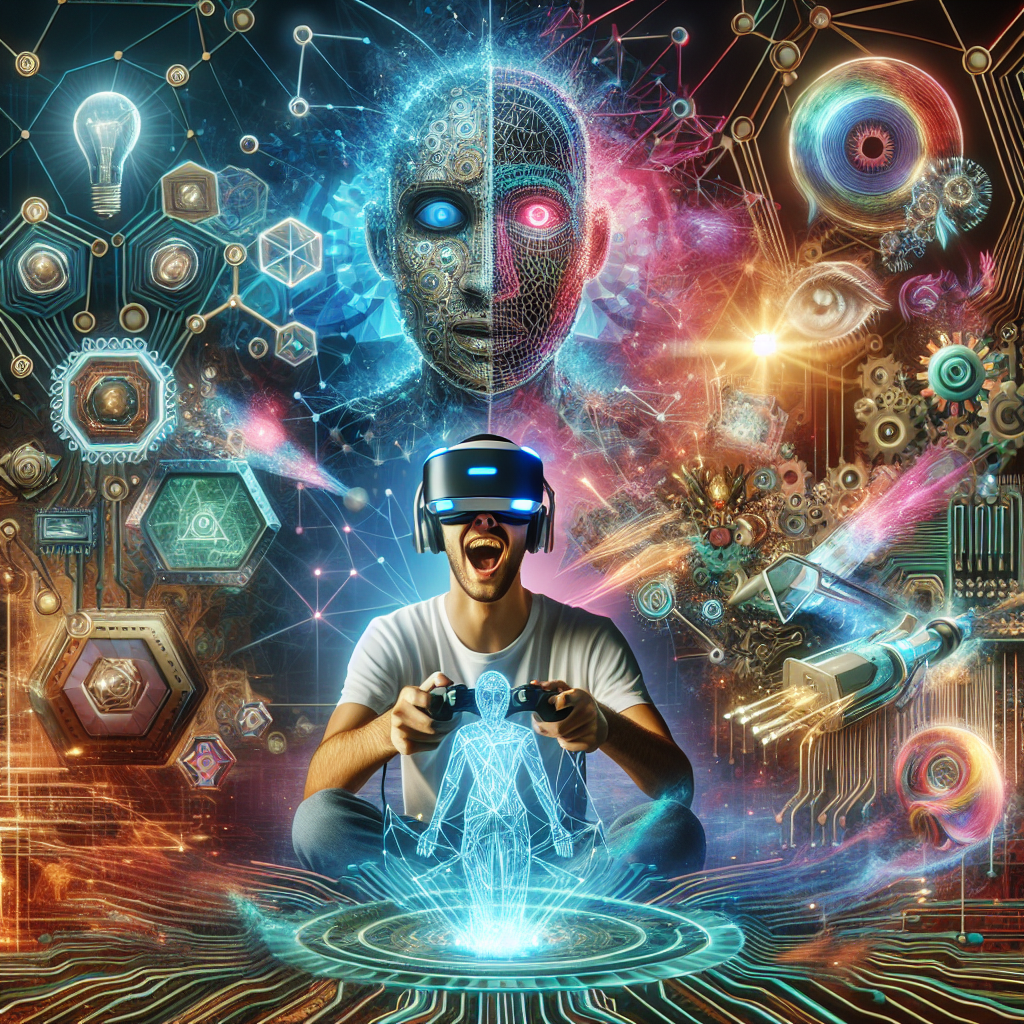Artificial Intelligence (AI) has revolutionized the gaming industry by creating immersive experiences that were once thought to be impossible. AI technologies have enabled game developers to create more realistic worlds, intelligent non-player characters (NPCs), and dynamic gameplay that adapts to the player’s actions in real-time. In this article, we will explore how AI is shaping the future of gaming and creating truly immersive experiences for players.
AI in Gaming: A Brief Overview
AI in gaming refers to the use of artificial intelligence technologies to enhance various aspects of gameplay, such as character behavior, game world creation, and player interactions. AI in games can range from simple decision-making algorithms for NPCs to complex machine learning models that can adapt and learn from player behavior.
One of the key areas where AI has made a significant impact is in creating more realistic and intelligent NPCs. In traditional games, NPCs are often scripted with pre-defined behaviors and actions, which can make them feel predictable and static. With AI, game developers can create NPCs that can react to the player’s actions in real-time, making them feel more lifelike and challenging to interact with.
AI is also being used to create more dynamic game worlds that can adapt to the player’s actions. For example, AI algorithms can generate procedurally generated content, such as levels, quests, and items, based on the player’s preferences and playstyle. This not only adds to the replay value of the game but also creates a more personalized experience for each player.
In addition to enhancing gameplay, AI is also being used to improve the overall gaming experience. For example, AI-powered chatbots can provide players with personalized recommendations, tips, and support, making it easier for them to navigate the game and overcome challenges. AI can also be used to analyze player data and feedback to improve game balance, identify bugs, and optimize game performance.
The Future of Immersive Gaming
The integration of AI into gaming has opened up new possibilities for creating truly immersive gaming experiences. By leveraging AI technologies, game developers can create worlds that feel alive, dynamic, and responsive to the player’s actions. Here are some of the ways in which AI is shaping the future of immersive gaming:
1. Realistic NPCs: AI technologies such as deep learning and natural language processing are being used to create NPCs that can engage in realistic conversations, exhibit emotional responses, and adapt to the player’s actions. This not only adds to the immersion of the game but also creates more meaningful interactions with the game world.
2. Dynamic Environments: AI algorithms can be used to create dynamic game worlds that evolve and change based on the player’s actions. For example, in a survival game, AI could simulate weather patterns, resource availability, and enemy behavior in real-time, creating a more challenging and unpredictable environment for the player to navigate.
3. Personalized Gameplay: AI can analyze player data, such as playstyle, preferences, and skill level, to create personalized experiences for each player. For example, AI can adjust the difficulty level of the game, provide hints and tips when needed, and offer custom quests and challenges that cater to the player’s interests.
4. Adaptive Storytelling: AI-powered narrative systems can create branching storylines that adapt to the player’s choices and actions. This allows players to have a more active role in shaping the story and the outcome of the game, making for a more engaging and immersive experience.
5. Enhanced Immersion: AI technologies such as virtual reality (VR) and augmented reality (AR) are being used to create immersive gaming experiences that blur the line between the virtual and the real world. By combining AI with VR/AR, game developers can create experiences that fully immerse players in the game world, making them feel like they are truly part of the action.
FAQs
Q: How does AI enhance the realism of NPCs in games?
A: AI technologies such as deep learning and natural language processing are used to create NPCs that can engage in realistic conversations, exhibit emotional responses, and adapt to the player’s actions. This makes NPCs feel more lifelike and challenging to interact with.
Q: How does AI create dynamic game worlds?
A: AI algorithms can generate procedurally generated content, such as levels, quests, and items, based on the player’s preferences and playstyle. This creates a more personalized and dynamic game world that adapts to the player’s actions in real-time.
Q: How does AI personalize gameplay for each player?
A: AI can analyze player data, such as playstyle, preferences, and skill level, to create personalized experiences for each player. This includes adjusting the difficulty level of the game, providing hints and tips, and offering custom quests and challenges.
Q: How does AI enhance storytelling in games?
A: AI-powered narrative systems can create branching storylines that adapt to the player’s choices and actions. This allows players to have a more active role in shaping the story and the outcome of the game, creating a more engaging and immersive experience.
Q: How does AI enhance immersion in gaming experiences?
A: AI technologies such as virtual reality (VR) and augmented reality (AR) are being used to create immersive gaming experiences that fully immerse players in the game world. By combining AI with VR/AR, game developers can create experiences that blur the line between the virtual and the real world.

